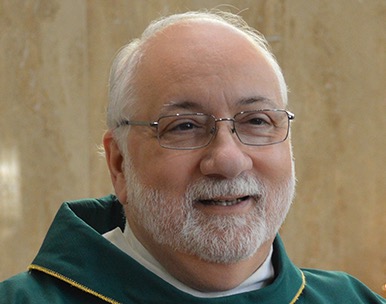Intrinsic Connection: Contraception and Abortion
The radical impact on how we view sexuality and its relationship to the unborn
Deacon Dominic Cerrato Comments Off on Intrinsic Connection: Contraception and Abortion
 Many of us are old enough to have witnessed a great cultural change. I recall growing up in the 1960s watching TV shows like “Bonanza,” “The Andy Griffith Show” and, of course, “The Beverly Hillbillies.” Perhaps I’m being too sentimental, but these programs reflected a world of baseball, hot dogs and apple pie. They embodied, at least implicitly, basic Judeo-Christian values that reinforced the formation children received at home and at school.
Many of us are old enough to have witnessed a great cultural change. I recall growing up in the 1960s watching TV shows like “Bonanza,” “The Andy Griffith Show” and, of course, “The Beverly Hillbillies.” Perhaps I’m being too sentimental, but these programs reflected a world of baseball, hot dogs and apple pie. They embodied, at least implicitly, basic Judeo-Christian values that reinforced the formation children received at home and at school.
This is not by any means to suggest that everything was peaches and cream. Even in the early ’60s there was unrest. Racial tensions were still brewing, drugs were becoming more popular on the streets and the Cold War was in full swing. Still, the entire family could sit down in front of the TV after dinner and watch Dick Van Dyke take a pratfall, Agent Maxwell Smart thwart Chaos and Marshal Dillon catch the bad guys. However, by the late ’60s and into the ’70s, all this would change.
Historians and sociologists will, no doubt, debate the factors that led to this cultural change. I suspect they are many and varied, each and in their own way eroding the Christian values that made up the America of that time. What can’t be debated is the radical impact this erosion had on how we viewed sexuality and its relationship to the unborn.
Certainly, one of the major contributors to these changing attitudes was the advent of the birth control pill. While contraception in the 1960s was hardly new, “the pill” was convenient and effective. It had the effect of separating procreation from sex. This meant that a couple could engage in sexual activity without the consequence of a child. However, there was something even more insidious at play here. The intrinsic link between the pill and abortion.
When the pill was first developed, it used artificial hormones to trick the body into believing it was pregnant. In this state women didn’t ovulate, and, without ovulation, there could be no conception. While this is still morally problematic in itself, the side effects were considerable enough for the pharmaceutical companies to reduce the dosage. In this case, ovulation did occur about 20% of the time, however, the pill also changed the lining of the uterus such that, when the new life sought to implant, the child was rejected and eventually died.
It’s difficult to say how often this occurs, but it can occur in any given woman in any given cycle. Indeed, given the massive use of the pill over the last six decades, the number of “silent” abortions would far exceed the 61 million unborn babies who lost their lives through legalized procured abortions.
It’s been said that social engineering begins with verbal engineering. If we change the meaning of a word, we change the way people think about it. This is precisely what many of the pharmaceutical companies did. Fearing the backlash of the pro-life community, they changed the definition of abortion from the termination of pregnancy any time after conception to the termination of pregnancy after implantation. From this perspective, with no implantation, there was no abortion.
No amount of social engineering can change the fundamental truth that there is an intrinsic relationship between certain contraceptives such as the pill and abortion. They embody, at least implicitly, what Pope St. John Paul II would call the culture of death.
As deacons, we stand in the service of life precisely because we serve the God of life. I would challenge my brother deacons with the same urgency that I challenge myself in taking stock of how my ministry, indeed how the whole of my being serves the sanctity of life, from the moment of conception to natural death. This is the great task of which we’re called, and the great privilege which we’ve been given. Let us continue to embrace it in Christ Jesus our Lord.
DEACON DOMINIC CERRATO, Ph.D., is editor of The Deacon and director of diaconal formation for the Diocese of Joliet, Illinois. He is the founder of Diaconal Ministries, where he gives national presentations and retreats to deacons and diaconal candidates. Follow him on Facebook to continue the conversation.





